Ever wondered why a simple breakfast combo is used to describe someone’s livelihood?
A means of livelihood, or the most important part of a person’s work or activities
Have you ever stumbled upon an English expression that left you feeling puzzled?

Sometimes, a simple phrase carries a deeper meaning than its words suggest.
This guide explores the popular idiom “bread and butter” – a term that might initially sound like a breakfast option, but actually represents something vital or indispensable in one’s life or career.
By the end of this discussion, you’ll grasp its true significance and learn how to use it effectively in everyday speech.
Bread & Butter Basics
English can be filled with phrases that mean more than what meets the eye. “Bread and butter” belongs to this category of idioms, representing something vital or indispensable.



Remember: When someone says ‘That’s my bread and butter,’ they’re talking about their essential work—not their breakfast!
Much like real bread and butter, it is a fundamental part of their routine that keeps everything else going.
Bread & Butter Meaning
This phrase describes the most crucial element of one’s job, hobby, or daily pursuits. If you imagine your profession as a sandwich, “bread and butter” is the base that supports the rest of the ingredients.
People often rely on this idiom to express what truly matters in their work. By identifying your “bread and butter,” you pinpoint the core duty that helps you thrive.
Where Does It Come From?
The origins of this expression date back centuries, reflecting how fundamental bread and butter were to daily meals.
Some sources trace the idiom to the 18th century, while others mention the 17th century as its earliest recorded use.
Bread has long been a dietary staple, and butter a common complement to it. Together, they symbolize the basic necessities that keep people sustained and satisfied.
Using Bread & Butter
Applying “bread and butter” in real-life scenarios can add depth to casual conversation and professional discussions. Below are a few pointers on integrating this idiom into your daily speech:
- Identifying Your Core Task:
When someone asks about your primary responsibility, you could say: “Planning lessons is my bread and butter.” This clarifies that lesson planning is the essential aspect of your role. - Discussing Financial Stability:
Professionals might say: “My bread and butter comes from freelance writing,” to emphasize a main revenue source. It implies that this activity is their economic backbone. - Highlighting Fundamental Skills:
If you work in technology, you might mention: “Coding is my bread and butter,” reflecting the skill that keeps you in demand. This phrase instantly conveys what you do best. - Showing Reliability:
When describing core products or services, a manager might say: “Our bread and butter is customer support.” This affirms that their business thrives on satisfying clients.
Anecdote from Real Life
A friend, new to English expressions, once sprinted through their kitchen, exclaiming: “I can’t find my bread and butter!”
Unaware of the idiom, they thought everyone literally wanted them to locate bread and butter before heading to work.
In reality, their boss had used “bread and butter” to describe the person’s core duties. The friend eventually realized that the office was waiting for crucial data reports, not a grocery item.
This story illustrates how “bread and butter” can cause confusion when taken at face value. Learning the idiom prevents similar misunderstandings and helps conversations flow smoothly.
Similar & Opposite
Idioms rarely stand alone in any language. Below are related terms and contrasting phrases that can sharpen your understanding:
- Similar Expressions
- Mainstay: Signifies the central support of a system or activity.
- Staple: Suggests something that is necessary or routinely used.
- Cornerstone: Points to a critical component that keeps everything else in place.
- Opposite Expressions
- Luxury: An optional extra rather than a necessity.
- Nonessential: Something you can do without.
- Optional: Suggests that it is not required or indispensable.
Understanding these terms helps you recognize when “bread and butter” is the right fit. It also ensures that you avoid misusing the idiom when you want to convey the idea of something optional.
Related Idioms
English abounds with expressions that emphasize fundamental qualities or basic components. Below are a few you might encounter:
- Meat and Potatoes: Focuses on the most substantial parts of an issue or topic.
- Nuts and Bolts: Zeroes in on the essential details or mechanics of a process.
- The Whole Enchilada: Refers to everything involved, sometimes implying more than just the basics.
These idioms each have a unique tone, but they echo the idea of highlighting what really counts. Feel free to experiment with these expressions to expand your linguistic range.
History & Evolution
“Bread and butter” has stood the test of time due to its clarity in illustrating what is crucial. In earlier centuries, daily life revolved around subsistence, and bread with butter was a simple pleasure.
As language evolved, everyday foods naturally turned into symbols. Today, “bread and butter” evokes the idea of a steady foundation that you rely on for progress.
The phrase has also seen metaphorical expansion in various industries. From finance to hospitality, professionals use it to emphasize core products, primary revenue streams, or basic tasks.
Recognizing the versatile nature of idioms ensures you can adapt them to your specific context. Whether describing a key responsibility or an indispensable product, “bread and butter” fits neatly into your arsenal of expressions.
Hidden Strengths Story
Consider a teacher whose usual focus is on language instruction. They might say, “Teaching grammar is my bread and butter,” since it forms the backbone of their work.
One day, the school requests that the teacher develop a creative writing module. Initially, this person feels uneasy because grammar drills, not story prompts, define their comfort zone.
Yet, stepping outside that routine leads to newfound skills and confidence. The teacher learns that exploring beyond one’s “bread and butter” can uncover hidden abilities worth nurturing.
This anecdote reveals that while it is essential to identify your foundation, you should also remain open to growth. Being too fixated on a single skill might limit your development in other areas.
Pop Quiz: Check Your Idiom Skills
Bread and Butter

Conclusion
“Bread and butter” is more than a simple reference to a meal. It symbolizes the bedrock of a person’s profession, daily routine, or main source of sustenance.
By incorporating this idiom into your conversations, you highlight what is truly vital. It might be coding for a programmer, patient care for a nurse, or customer support for a business.
Key Takeaways
- “Bread and butter” refers to a fundamental component or steady source of income.
- Acknowledging your key activities helps establish what keeps you stable and focused.
Consider sharing instances in which “bread and butter” came up in your life or career. Stories enrich our shared learning and help others grasp the value of recognizing their own essential roles.

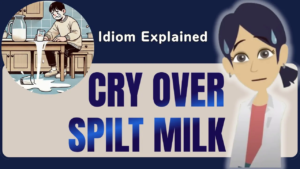
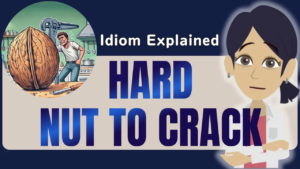
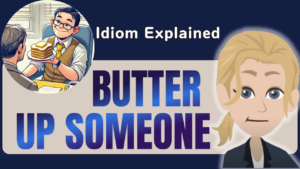
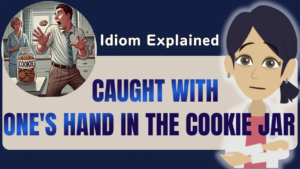

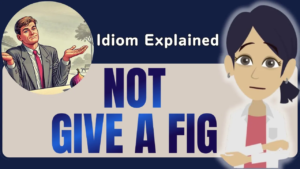


Comment